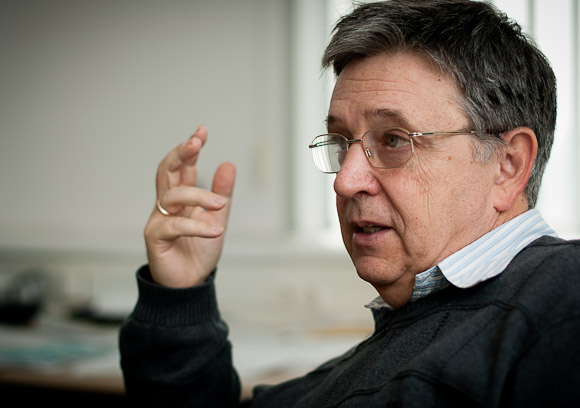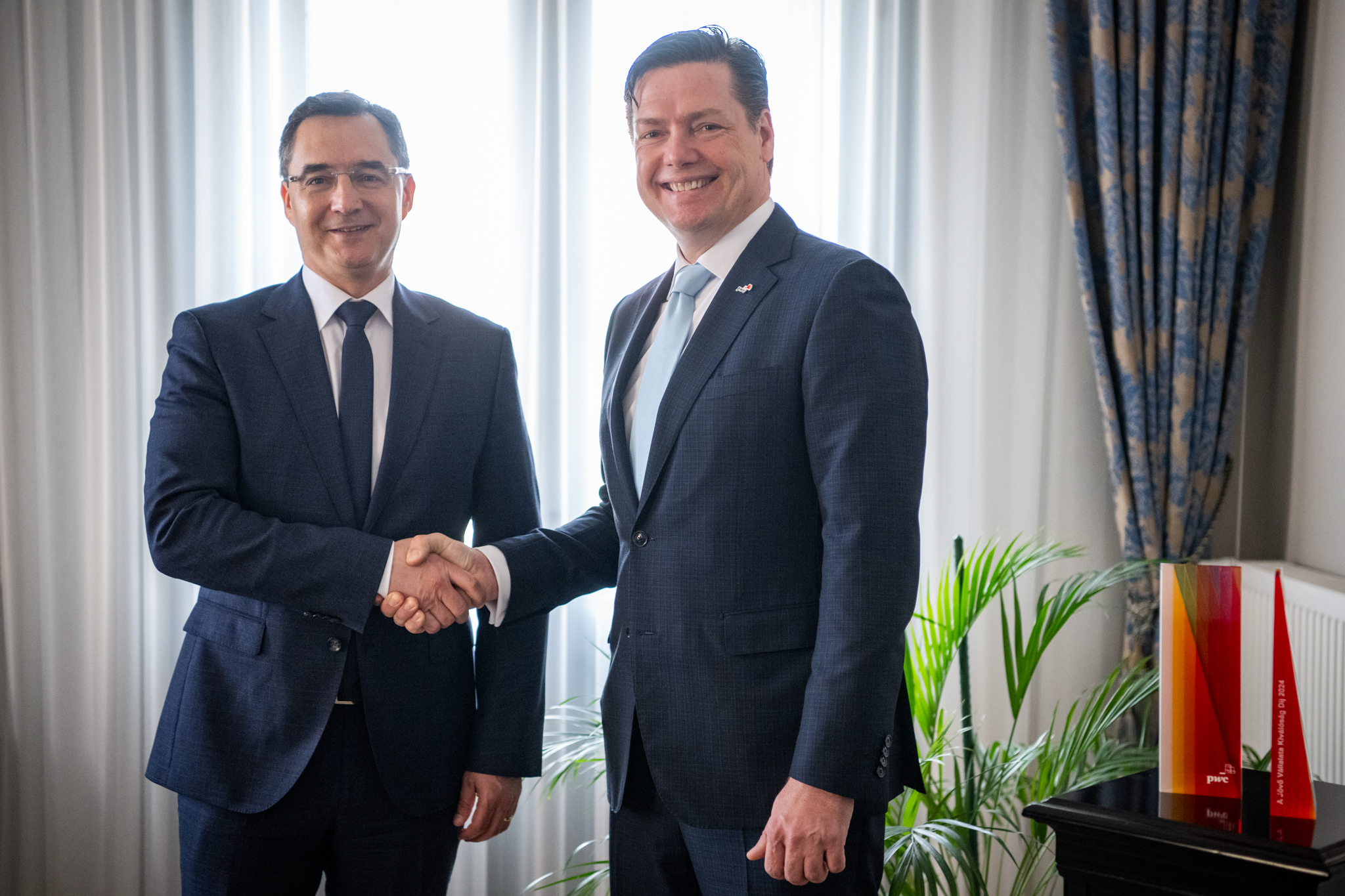Interview: Hungarian Academy of Science president Lovász László

From the Budapest Business Journal print edition: Among scientists, a hotly debated question has always been whether managers specialized in science or senior scientists make better research directors. In Hungary at least, there seems to be a clear-cut answer to the problem: the best scientist is the best scientific manager. László Lovász (66), a Hungarian mathematician of great international impact, was recently elected president of the Hungarian Academy of Sciences (MTA). BBJ questioned him about current sensitive issues in science management.
BBJ: In Western Europe, huge scientific research such as CNRS and May Planck have made considerable efforts to switch their financing model to a project-based system instead of relying on supporting institutions. In Hungary, such a reform has hardly started at all.
Lovász: I would not contrast these two financing systems so sharply. It is certainly important that the financing of research should depend on the results, and promising new projects should get the necessary support. On the other hand, it is also commonplace that the real scientific breakthroughs are unplannable, and often the first publishable results are produced slowly. The research style in many humanities is again quite different. I think a variety of financing models should be used, in the right proportions, monitoring the results of the reforms of the last period.
Will participation in big European research projects be a priority in the coming years? Do you want to facilitate cooperation through institutional reforms?
It is extremely important that we integrate our scientific research into European (and world) science. If participating in big projects best does this, then this must be sponsored. But I also believe that small-scale cooperation (on the level of persons and research groups) is often equally important, and we have to be active in further developing a European framework for this.
In the United States and Western Europe, the most accepted marker of scientific output is the so-called impact factor based on scientific citations. MTMT, its Hungarian equivalent, is maintained by the personal contribution of publishing scientists themselves.
The use of impact factor and other quantitative measures based on citation statistics is hotly debated worldwide. These are quite generally (but not universally) accepted in experimental sciences, but rejected for example in mathematics, and totally inappropriate for humanities whose subject matter is country-specific. Any evaluation system for grants, prizes, jobs etc. must take these differences into account.
MTMT is an important database to have, but it should be developed to become more user-friendly. Differences between different branches of science play a role here as well. For example, the handling of open access and copyright issues has different traditions in different sciences.
On both issues, the academy must cooperate with several EU organizations (and take the lead if necessary), since efficient answers can often be found only on the European level.
What do you think of the Higher Education Act as an academic man and a university professor?
Universities are very important for science as a source of new talent, but also as research centers. The leading research universities in Hungary should be on an equal level with the academic research institutes. The academy has made important steps to improve relations and to support university research by creating a new research center next to the campus of two main research universities, and by financing research groups and grants and universities. The current law about higher education has several features that stand in the way of improving this cooperation, and the academy should strongly support changes that make university research and education more efficient.
Scientific research requires special talent, and talented children from all classes of society should be discovered, supported and nurtured. The divergence in social status that we have experienced in the last 25 years is a great danger from this point: the number of kids who have a chance to become scientists is dropping. I would support changes in the laws and in the educational system that counter this very serious problem.
SUPPORT THE BUDAPEST BUSINESS JOURNAL
Producing journalism that is worthy of the name is a costly business. For 27 years, the publishers, editors and reporters of the Budapest Business Journal have striven to bring you business news that works, information that you can trust, that is factual, accurate and presented without fear or favor.
Newspaper organizations across the globe have struggled to find a business model that allows them to continue to excel, without compromising their ability to perform. Most recently, some have experimented with the idea of involving their most important stakeholders, their readers.
We would like to offer that same opportunity to our readers. We would like to invite you to help us deliver the quality business journalism you require. Hit our Support the BBJ button and you can choose the how much and how often you send us your contributions.









